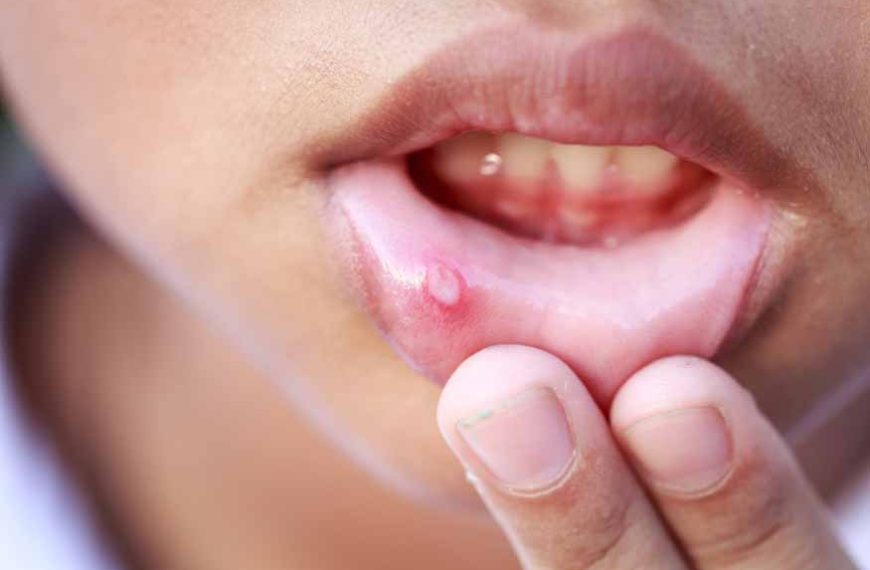Kids are usually full of energy, during playtime, during the times they want to communicate with the new vocabulary they just learned, they are mostly active all the time. If the kids are not talking, responding, or eating as usual, the first instinct of parents is to worry if something is wrong with their health. A reason could be canker sores. What is a canker sore? Canker sores are a common ailment affecting people of different ages, including kids. Despite their generally benign nature, these small, painful sores can cause discomfort. Canker sores are medically referred to as aphthous ulcers. It is a common oral ailment seen in kids of any age. They can make eating or speaking difficult because of the pain and discomfort in the mouth due to the sores.
Parents play a crucial role in comprehending the signs, exploring potential causes, implementing effective remedies, and adopting preventive measures to help their kids manage and alleviate these bothersome oral lesions. In this article, we will cover the following questions about canker sores:
- How to recognise the signs of canker sores?
- What causes canker sores?
- How to cure canker sores or how to treat canker sores?
- How to prevent canker sores?
How to Recognise the Signs of Canker Sores?
Recognising the signs of canker sores in kids is important for parents to provide timely assistance. The following points are common indicators of canker sores in kids:
- Small, Circular Lesions
- Distinct Appearance
- Pain and Discomfort
- Eating Challenges
Canker sores typically appear as small, round or oval-shaped ulcers that develop on the soft tissues inside the mouth. Common sites of these ulcers include inner cheeks, lips, gums, or the base of the tongue.
These sores present a distinctive appearance with a white or yellowish centre surrounded by a red border. This visual cue helps in distinguishing canker sores from other oral ailments or conditions.
Kids with canker sores usually face pain and discomfort while eating and speaking. The intensity of pain and discomfort can vary based on the size and the placement of the canker sore in the mouth.
Due to the sensitivity of the canker sores affected areas, children may encounter difficulties while consuming certain foods, including spicy, acidic, and food that requires intense chewing.
What Causes Canker Sores?
Understanding the underlying reasons for the cause and development of canker sores in kids is essential for effective management at the earliest. While the precise reason is not known, several factors can contribute to their occurrence:
- Genetic Predisposition
- Immune System Factors
- Oral Trauma
- Food Sensitivities
Evidence suggests a genetic predisposition to canker sores. Kids with a family history of recurrent canker sores are more susceptible to developing these oral lesions.
A weakened immune system in kids can increase the likelihood of canker sores. Contributing factors such as illness, nutritional deficiencies, or chronic stress can compromise a kid’s immune system, rendering them more susceptible to these oral lesions.
Oral trauma can happen due to accidental biting of the cheek or tongue, usage of abrasive toothpaste, or injuries from dental procedures and appliances. They can lead to the formation of canker sores in kids.
Certain foods, especially those that are acidic or spicy, can trigger the development of canker sores in sensitive mouths. Identifying and avoiding these foods that trigger these oral lesions can help in preventing recurrent outbreaks.
How to Cure Canker Sores or How to Treat Canker Sores?
While canker sores in kids are generally self-limiting and go away on their own over a period of time, parents can employ various home remedies and over-the-counter treatments to provide relief to the kids. It is important to note that severe or recurrent cases may need to seek professional medical assistance. Here are some remedies to alleviate the symptoms of canker sores in kids:
- Topical Analgesics
- Topical Antiseptics
- Saltwater Rinses
- Avoiding Trigger Foods
- Probiotics
Over-the-counter topical gels or ointments that contain benzocaine or lidocaine can be applied to the affected area in the mouth. These agents help numb the region which helps in offering temporary relief from pain and discomfort.
Apply a mild antiseptic solution, such as hydrogen peroxide diluted with water. It can aid in preventing infection and promotion of faster healing of canker sores.
Gargling with warm saltwater solution can help reduce inflammation and accelerate the healing process. This simple remedy can be made use of several times a day, especially after meals. Please note that only a pinch of salt should be used. Too much salt can lead to worsening of the inflammation.
Identifying and eliminating trigger foods from a kid’s diet especially during an active outbreak, can help prevent recurrent episodes. Foods such as acidic fruits, spicy dishes, and specific nuts are common triggers.
Introducing probiotics into a kid’s diet can help in a large way. Supplements or yoghurt can help balance the gut flora and improve the overall immune system. A healthy gut contributes to enhanced resilience against infections, including canker sores.
How to Prevent Canker Sores?
Preventing canker sores in kids involves a proactive approach encompassing lifestyle adjustments and oral hygiene practices. Parents can take the following measures to reduce the likelihood of canker sore outbreaks in their kids:
- Maintaining Good Oral Hygiene
- Stress Management
- Balanced Diet
- Hydration
- Avoiding Irritants
Encourage kids to maintain good oral hygiene by getting them a soft-bristled toothbrush and a mild, non-abrasive toothpaste. Regular visits to the dentist is essential for maintaining overall oral health.
Teach kids stress-management techniques such as deep breathing exercises or engaging in relaxing activities. Chronic stress can compromise the immune system, making kids more susceptible to canker sores.
Ensure that kids follow a balanced diet rich in essential vitamins and minerals.
Proper hydration is crucial for oral health. Encourage kids to drink an adequate amount of water throughout the day to keep the oral mucosa hydrated which will eventually reduce the risk of canker sores.
Discourage habits such as biting the inside of the cheeks or using abrasive dental products that can irritate oral tissues. Identifying and preventing these habits can contribute to preventing oral trauma.
Canker sores in kids, although typically harmless, can cause pain and discomfort. Parents should proactively observe signs, explore potential causes, and implement effective remedies to alleviate symptoms and promote healing. By now we have learnt what is a canker sore, what causes canker sores, how to treat canker sores, and how to prevent canker sores. While home remedies offer relief, persistent or severe cases warrant professional medical attention. Embracing a holistic approach towards oral care empowers parents to navigate the challenges posed by canker sores and foster a healthy environment for their kid’s oral development.
For more of such interesting blogs, visit EuroKids.

















